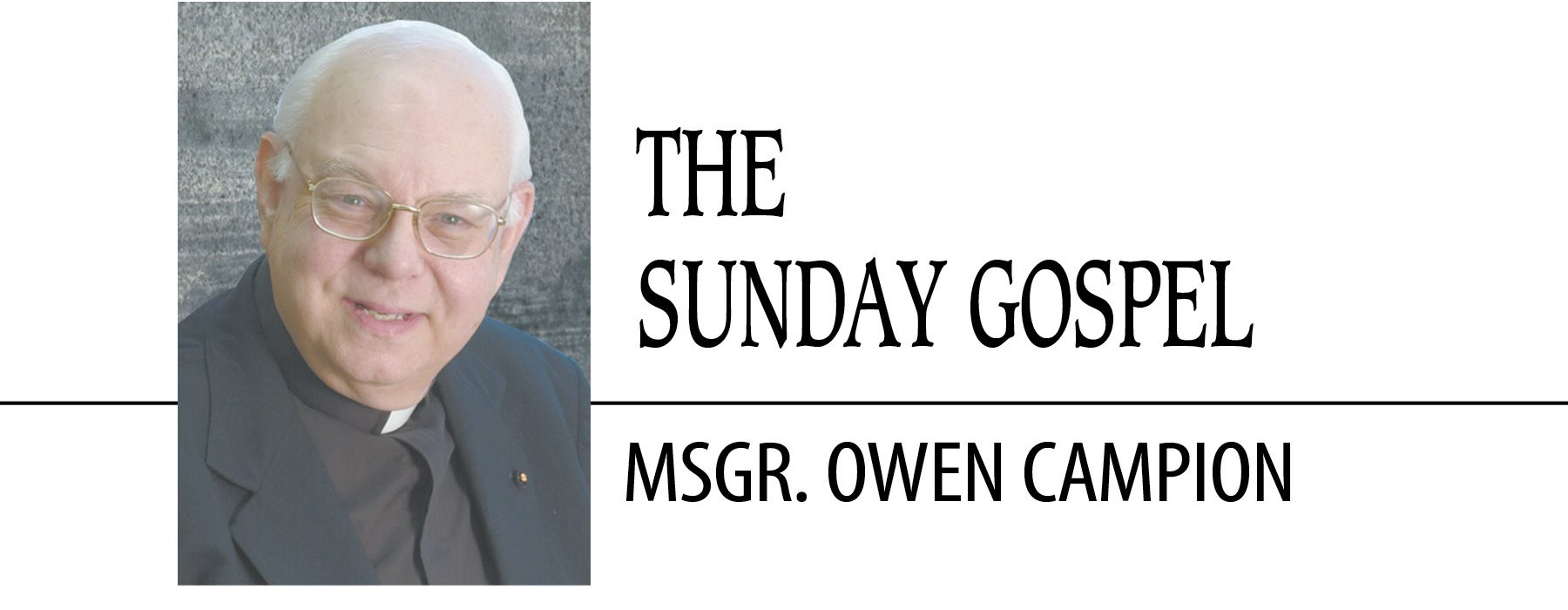August 31, 2022 // Perspective
Discipleship is Hard, but God Gives Strength for the Journey
Twenty-third Sunday in Ordinary Time
Luke 14:25-33
The Book of Wisdom provides this weekend’s liturgy with its first scriptural reading.
This book was written, according to scholars, in Alexandria by a Jew who had emigrated from the Holy Land or whose forebears had come from the Holy Land. Originally, it was composed in Greek. Since it was written outside the Holy Land and not in Hebrew, Orthodox Jews have never accepted it as genuine Scripture. Following this reasoning, Anglican scholars in the early 17th century excluded it from the King James Version of the Bible.
In ancient Christian tradition, it was revered as inspired by the Holy Spirit. Therefore, Catholic translations of the Scriptures include it.
This book, along with so much of the wisdom literature, builds on the basic notion that the unshaken Jewish belief in the one true God of Moses and the law of Moses itself reflects the deepest and best human logic, or wisdom.
Specifically, this reading simply says that much of life cannot be predicted beforehand, nor can it be understood. Humans are limited. God is all-wise. The wonder is that God has shared with us, speaking to us through representatives such as Moses and the prophets.
For its second reading, the Church chooses a passage from the Epistle to Philemon. Only rarely is this epistle the source of a reading in the liturgy, possibly because Philemon is the shortest volume in the New Testament, with only one chapter with just 25 verses.
The story is dramatic. Paul wrote to Philemon, whose slave, Onesimus, escaped from Philemon’s custody to be with Paul.
(To run away from slavery was a very serious crime in Roman law at the time, as it once was in the United States.)
In this letter, Paul announced that he was sending Onesimus back to Philemon, but Paul counseled Philemon to receive this runaway slave as a brother in Christ.
Several lessons strongly appear. The first is that all humans are equal in dignity, having been created by God, and having been redeemed by Christ.
Secondly, disciples must love all others, including those difficult to love, even those who have done wrong.
St. Luke’s Gospel supplies the last reading.
The Gospel already has made clear that true discipleship builds upon a deeply personal wish to follow the Lord. It is a decision not always easily sustained.
Enabling a disciple to continue in this resolution and to abide by it in every circumstance of life requires not just determination, but God’s strength and insight.
The Gospel bluntly says that many obstacles may stand between a disciple’s intention to follow Christ and actually living as a disciple.
It is important to remember that Luke was written when Christianity, albeit an infant religion in the Roman Empire, very much was sailing into the hot, strong winds of cultural opposition to Gospel values and even into persecution under the law.
A fact, resulting from this situation, was that Christians had to face pressure from their loved ones to forsake the Gospel. Thus, the evangelist here recalls that Jesus said a true disciple should turn away even from father and mother, brother or sister, if these close relatives urged abandoning Christ, because first and foremost was the disciple’s choice to be one with Christ.
Reflection
The Gospel sets the stage. Living the Christian life is not easy. Christians must withstand much if they truly are committed.
Among many pressures is the pressure not to see God in others, to deny others their due. Only in standing firm against such pressures can a disciple expect to stay the course. Disciples must on occasion even re-think presuppositions, change opinions, and even defy prevailing conventions.
It may be hard, but if undertaken for Christ, God will provide the needed strength.
The best news. Delivered to your inbox.
Subscribe to our mailing list today.






